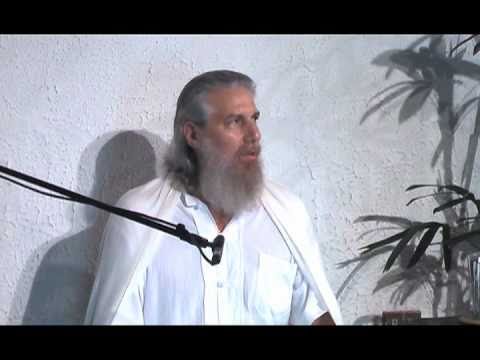Closer To Truth
How is it possible that mushy masses of brain cells, passing chemicals and shooting sparks, can cause mental sensations and subjective feelings? How can brain chemistry and electricity be ‘about’ things?
For more videos on the mind-body problem click here http://bit.ly/1ItBBHw
For more on information on Daniel Dennett click here http://bit.ly/1y49TBd
Source




I don't think that computers have really made a dent in the understanding of the human mind.
+SeanMauer
Agreed. Comparing a programmed tool to the human mind is ludicrous. There would be no computers were there no minds. This is the problem at the root and core of the A.I. singularity nonsense-talk of the transhumanists.
How does the PROGRAMMEE become the PROGRAMMER?
There is a chasm fixed betwixt the two that cannot be traversed. It is less possible than trying to count to infinity by 1,2,3,…etc., yet, we are told that leaps in technology and information gathering has us on the brink of this (what could only be a) monstrosity. So let's say, for the sake of argument, Descartes in his day was approaching the metaphorical equivalent of 1,000 (in techno-singularity points) on the way to infinity and we are now at 752 trillion+. Trick question: Who is closer to infinity? Descartes @ 1G or the transhumanist @ 752 tril?
That's right, they are both still infinitely far away from reaching infinity. Difference is, Descartes was intelligent (or at least grounded) enough to realize it.
Would love to see everyone join us at ClosertoTruth.com and engage the community there with these great comments & input!
Dennett's view on the mind is that of a minority of one.
Absolutely 100% Spot ON!
So the mind body problem is still a problem. Dennett is suggesting that we ought to look at each others subjectivity from an objective point of view. It would be nice if that could be accomplished. I sincerely hope that by this he is not suggesting that brain scans currently do the job. This would not be looking at someone else's subjectivity. One would simply be looking at their brain and how it correlates with certain reported brain states. Basically we are still only observing objective matter (neurons) from which we infer subjectivity – but we're not observing subjectivity. We're simply not observing each other's subjectivity when we look at brain scans. Anyway I presume Dennett is not suggesting this Ludicrous idea. Given this, and presuming the answer to the mind body problem must be solved by science, how on earth can we even conceive of objectively observing someone else's subjectivity?
Very interesting listening to Dan
The mind-body problem is just a tangle of thought, a cultural artifact, a sort of neurosis, brought on by confusing symbols with that for which they stand.
why can't you focus the camera before the video begins?
Privileging the third person is certainly a strategy but it is hardly neutral. Mind just has both third and first person aspects. It is the latter that raises what is called the 'Mind-Body Problem'. The question is this: how can something describable, explicable and understandable in purely mechanical terms actually be a conscious entity? Description and explanation of mechanism is solely a third person strategy. By its nature it excludes the first person. Thus, the problem will outlive Dennett and even his strategy.
I would never had made any kind of distinction between mind and body if that concept had never been introduced to me. To believe there is an immaterial mind takes a degree of faith because it cannot be disporven or proven. Personally I don't believe we can divide up ourselves or the world and,make what is one thing into a duality and still be an accurate description of reality. In nature, the natural world, reality, there are no dividing lines.
this is very interesting, does anyone know how to find the full interview? I would appreciate so much.